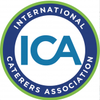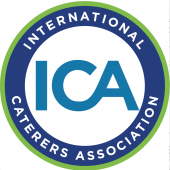To Sell or Not to Sell: Maximizing the Final Months of 2023 to End the Year StrongTo Sell or Not to Sell: Maximizing the Final Months of 2023 to End the Year Strong
November 15, 2023

“We’re afraid to sell.” Words you never thought would come out of your sales team’s mouths, yet words that are becoming a common occurrence as we navigate yet another holiday season with labor shortages and skyrocketing food costs. These are issues plaguing the industry across the globe, and only those who learn how to make the most of it will survive.
That’s why during this month’s International Caterers Association roundtable, Frank Christian, managing partner of Taylored Hospitality Solutions, and Jennifer Perna, principal of Fulton Market Consulting, joined to share their best strategic approaches for collaboration and cost optimization so catering companies can end the year strong.
Current catering industry landscape
Prior to the roundtable discussion, Perna and Christian sent out a survey to catering business owners and stakeholders across the globe to get a pulse on where the industry is at. What they found was that most companies were struggling with the same challenges: staffing, food costs, a slowdown in the corporate catering world, and clients dragging their feet on booking. This shows up in a 75% decrease in business for Q1 year-over-year.
All this considered, of those 100 companies that responded, the median booked to goal for this year was 85%, with an average of 78% at the time of the webinar in September. At that time, those numbers were good—but as we get into November and December, you should be at 100-110% of your 2023 sales goals with booked contracts signed on the dotted line (at minimum).
So, if you’re not there, what can you do? There are two major things Christian and Perna discussed in the webinar that you can focus on to optimize year-end sales. Despite the fact that we’re nearing the end of the year, you can still be booking last-minute holiday parties and January New Year events with special rates.
The key is ensuring your sales and operations teams are on the same page and you’re using strong sales closing tactics. Now for the tips….
Collaboration Is key: how sales & ops can work together for success
As mentioned, one of the most common struggles consultants are hearing from catering teams right now is the question, “Will our ops team be able to service this?” Christian shared the most common statement he’s hearing from sales teams right now is, “We are afraid to sell. We're not sure we're going to be able to hit our numbers because we're not sure that the other departments are going to be able to keep up.”
And, friends, that’s where collaboration and communication come in. If you’re not optimizing your cross-departmental communication, you’re missing out on opportunities, and you’re likely not providing a cohesive client experience.
So, if you’re not already collaborating, how can you start?
Allow ops to share need dates & event feasibility
During your weekly stand-up or production meetings, have sales and operations run through need dates together. Look at how many open dates you have in November and December and allow operations to tell you how many they can feasibly serve each day. This way, sales will have a target and operations knows that the events are in the process of being sold, and they should anticipate those needs.
The operations team should have full authority to veto a not-so-profitable breakfast event on a Monday morning after a weekend full of events. And by allowing them to participate in that process, everyone ends up happier—including the client.
Suggest alternative service options
Stations are huge for a reason right now. It’s because most of them don’t require the level of staffing a plated meal would, and with the labor shortage, that’s key. If a client wants a plated meal and your operations team advises you staffing isn’t sufficient to execute effectively and efficiently, be transparent with the client and suggest an alternative format!
Try to sell the same menu as often as possible
Food cost goes down immensely when you can order in bulk. So, when you’re selling similar menu items, not only is it mentally easier for service and logistics—especially if they’re less labor-intensive dishes—but it also helps the P&L.
The key to ending above quota: in the month, for the month bookings
It’s no secret that in the month, for the month bookings are a bit more logistically complicated for operations teams. And for that reason, sales teams question their feasibility and may back off during the sales process. However, in doing that, you could be leaving a ton of revenue on the table. In fact, Christian shared that a handful of clients are operating at 25-30% in month revenue, for the month revenue, which is a massive percentage—for better or worse, he shared.
So, that said, the key to feeling confident in selling and servicing these events truly comes down to the pre-planning and cross-department collaboration (again)!
With that, if you look at year-over-year trends and monthly trends for 2023, you can likely predict what percentage of your business sold will be these last-minute events. Your sales and operations team can work together using those numbers to put holds with temp agencies or truck rentals that can always be released if the bookings don’t flow in—but at least then operations isn’t troubleshooting to find vendors last-minute.
So, how can your sales team really knock this year out of the park in the next couple of months with this unique booking style? Here are a few tips:
Differentiate between good revenue and bad revenue
It’s easy to get into that desperate energy when you realize you’re not at goal toward the end of the year. But you don’t want to take any old piece of business off the street. Strategic booking is critical in the home stretch of the year because if the event isn’t profitable, that ultimately doesn’t help those year-end numbers, and it may end up burning out your team.
If you haven’t already, identify a profit target for each event. If it aligns, book it. If it doesn't, move on and keep on selling Q1 2024.
Use non-refundable deposits & calls to your advantage
In today’s landscape, decisions to move forward with an event used to take a month. Today, the average client takes four months to make a decision. At the end of the year, you don’t have that flexibility. So, how do you close?
Say something like, “I'm happy to help. We'll take a $250 non-refundable deposit, and with that, you’ll receive your proposal tomorrow.” And stick to that. Get them some information. And that way, if they back out, then at least you have some money for your time!
From there, book a time on their calendar to review the proposal live on a Zoom call. You want to be able to overcome any objections and close that booking on the call whenever possible.
Play a little hard to get
Now, not too hard to get. But those who call in asking for these types of bookings shouldn’t expect availability. This is your chance to show them you’re catering to them because you want to make it happen.
Tell them you’ll take a look at the schedule and chat with your team and give them a call back. In the interim, see what your needs are, look at other menus happening around the same time, look at staffing levels, and determine what you need from the booking to make it worth it. Use that $250 deposit talking point and create your proposal in a way that serves your team; often, clients will jump at it because they want to snag the availability.
Leverage peak surcharges
Now, even if your team’s cross-departmental communication is on point, anything booked will put stress on operations. It’s just the nature of last-minute bookings. One tip shared by an attendee was to advertise “holiday peak surcharges” right after Labor Day weekend.
Send an email to all your clients sharing that for any events booked after November 1st for dates through the end of the year, a 5-10% peak season surcharge will apply. This typically encourages earlier bookings to avoid those fees. But on the contrary, those who inquire after November typically understand and have no issue with it, as they realize they’re choosing to book with short lead time.
Book multi-year contracts
Finally, one method some catering companies have used in Q4 to fluff up the numbers is to reach out to non-profit clients hosting galas or clients you know host annual conferences. Offer to lock in 2024 rates if they agree to sign a two- to three-year contract and submit their deposit before December 31st.
Collaborate with venues for a last-minute push
If you’re not fully booked, there’s a good chance your preferred venues aren’t either. Reach out to all your venue contacts for need dates in the holiday season—these are typically weekdays where a simple, cookie-cutter menu would be appreciated by teams looking to show employees their appreciation before year-end.
Work with operations to put together a highly profitable and repeatable holiday menu. Email it out to your list with the need dates, offering it at a great price if booked by XYZ date. This is a great way to not only strengthen venue relationships but pad your bottom line with for the month, in the month bookings.
Q1 2024 pacing guidelines
Now, as you start to wrap up this year, it’s important to also look ahead if you haven’t started already. While the most proactive sales teams started selling back in July, we realize that with staffing and industry challenges, it’s not always realistic. So, as you hammer it home in the next few months, here are guidelines for where you should aim to be in January to ensure a profitable start to 2024:
Corporate Sales – 25% to Goal
Wedding/Social Sales – 35% to Goal
Corporate & Social Venues – 45% to Goal
Wedding Exclusive Venues – 60% to Goal
You can also find a more in-depth breakdown for year-round goals that Perna shared in a previous roundtable discussion. And if you’re not there yet, ask yourself what you can leverage from the tips above to really start driving sales for a powerful start to a new year.
End your year with more ICA education & connections
As we start to plan for 2024, having a community in your corner that can help with tips and tricks when your bottom line isn’t quite where you want it to be is critical for success. The International Caterers Association hosts education and social events, both virtually and in-person, year-round for those looking to pioneer in the catering industry.
If you’re interested in being notified of future catering industry live and virtual education opportunities while also gaining access to our exclusive community of fellow catering professionals, visit internationalcaterers.org. Membership awaits!




.png?width=700&auto=webp&quality=80&disable=upscale)


